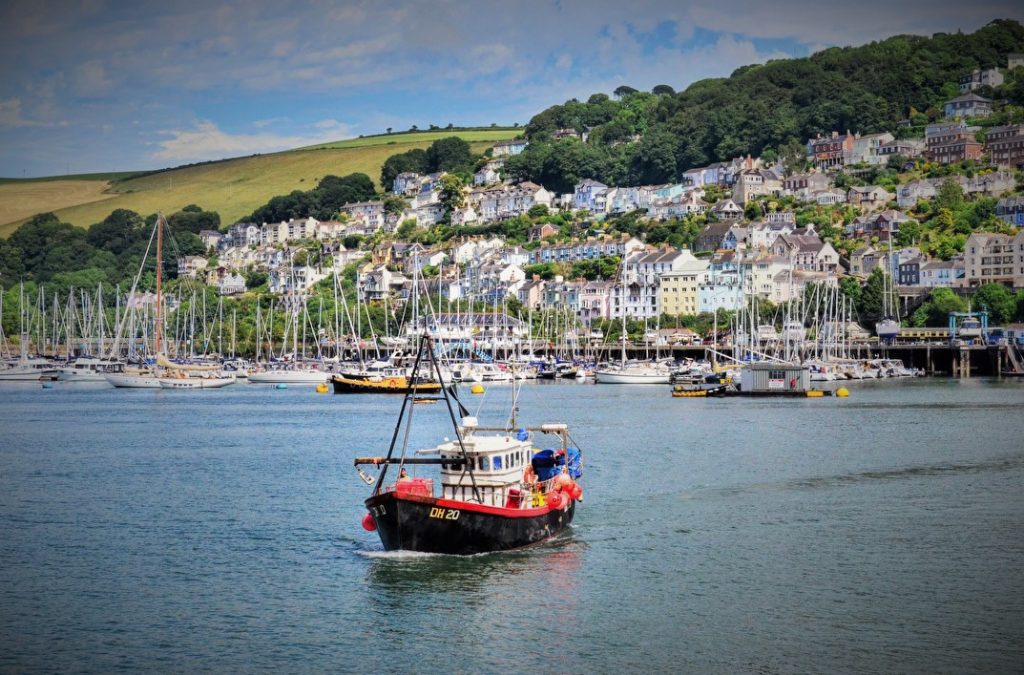The recently formed Shellfish Industry Advisory Group met recently in London for its second meeting to plan out its work programme. The new group is in Government seen as being at the cutting edge of co-management, where the fishers, fisheries managers and fisheries scientists work together to manage specific fisheries as partners.
Although there are already several examples of successful co-management in the UK and internationally to draw on, co-management is now expected to be a major feature of post-CFP fisheries management. The Fisheries Bill will provide the post-CFP framework for domestic fisheries management in the UK and there is scope within the new legislation for the co-design and implementation of management plans.
Formed in November last year, the Shellfish Group encompasses a wide range of shellfish interests, from all parts of the coast, engaged in the pot fisheries for crab, lobster and whelks. The meeting was also supported by Defra policy leads, IFCAs, fisheries scientists from Cefas, and Seafish.
The Shellfish Industry Advisory Group sees itself as an umbrella, which will encourage and oversee a range of bottom up grass-roots initiatives within the shellfish sector. Already a Whelk Sub-Group (the Whelk Management Group) has met to address the specific issues in the rapidly expanding whelk fishery. Likewise, a Crab and Lobster Group is now under way, and by the Group’s next meeting it is aimed to have a draft outline plan for the future management of the crab and lobster fisheries to discuss.
The intention is to thoroughly examine the different management options available, accepting that there may need to be regional variations and that the shellfish sector is in a particularly dynamic phase.
This will be a step-wise, systematic process. It will involve:
- A sound understanding of the stocks being fished
- Detailed knowledge of the fleets and gears, taking account of the dynamic changes at work
- An understanding of the economic drivers in the fisheries
- The development of a range of management options, (with pros and cons made explicit) for discussion
- Agreement on a way forward
- Scope to revisit and revise the plan to take into account new developments.
There is political support to make the plan happen and possibly financial support if it is needed. There is the will across the sector to make the group an inclusive but efficient vehicle to deliver a coherent and effective plan, supported by the industry, informed by the best available science and made to happen by government.
Management Plans
Management plans, as the place where different objectives are balanced out in the context of specific fisheries, are at the heart of the Fisheries Bill. They offer opportunities for the people whose activities will be affected by the plans, to participate in their design and implementation. It is with this still evolving structure in mind, that the Shellfish Group has grasped the nettle to take the initiative. The central idea is that working with fisheries regulators and fisheries scientists within a collaborative framework, despite the hard work involved, is more likely to deliver sustainable and profitable fisheries, than a plan prepared and handed down from above.
Although the Group is ambitious, it is modest enough to acknowledge that it is unlikely that it will get everything right from the outset. The management plan will therefore need to be adaptable enough to deal with unintended consequences or new information.
Identifying the limits of our knowledge – in the form of data gaps and inherent complexities in assessing shellfish species – will be an important part of the Group’s work.
Future of Our Inshore Fisheries
Co-management is also one of the key themes being progressed as part of the Future of our Inshore Fisheries project. The new SIAG and Whelk Management Group are building on the impetus of the October conference and are excellent examples of industry seizing the opportunity to make real improvements in how our fisheries are being managed. The report from the October conference will be released later this month and work is well under way to progress the priority initiatives that emerged from the conference, which in addition to co-management include collaborative science, and improved fisheries management. The two-day conference generated such rich material from grass-roots fishermen and international experts that it has taken longer than anticipated to pull it all together. Nevertheless, it is clear that there is momentum building to deliver a world class inshore fisheries management system capable of ensuring our fisheries, our marine environment and our coastal communities are sustainable and thriving.

